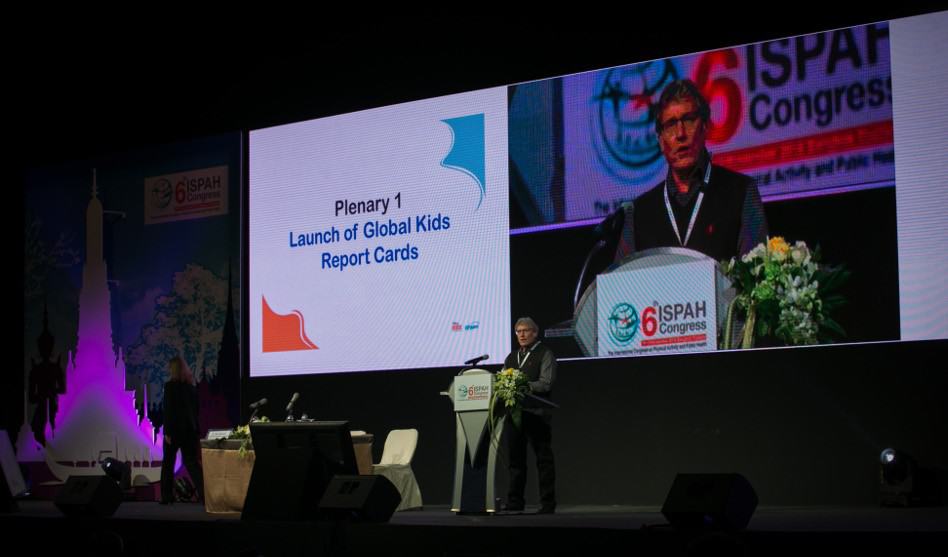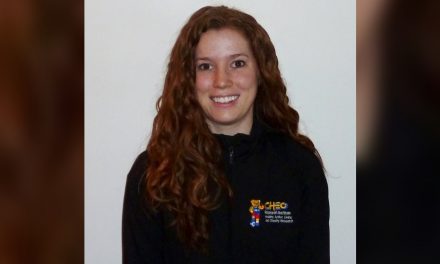Last Wednesday, HALO Director Dr. Mark Tremblay delivered an invited keynote address titled, “Global Matrix 2.0: International results from 38 countries,” before hundreds of delegates at the International Society for Physical Activity and Health’s (ISPAH) 6th International Congress on Physical Activity and Public Health in Bangkok, Thailand. The address unveiled the physical activity report card grades from 38 countries across 6 continents, which are available on the Active Healthy Kids Global Alliance website.
Key global findings include:
- Average grades for both Overall Physical Activity and Sedentary Behaviour around the world are “D” (low/poor).
- Countries with the most active children and youth overall, including Slovenia, New Zealand and Zimbabwe, rely on very different approaches to get kids moving. What is consistent between all of them is that physical activity is driven by pervasive cultural norms—being active is not just a choice, but a way of life.
- Lower income countries generally have better grades on active behaviours compared to higher income countries, yet worse grades for related strategies, supports and investments. Fewer attractive sedentary pursuits and increased autonomy to play and roam outdoors may be as important as infrastructure and structured activities to facilitate higher levels of childhood physical activity.
- Grades were generally lower in countries in Asia, North America and South America than countries in Africa, Europe and Oceania
- Key grade comparisons include:
- Overall Physical Activity – Slovenia leads with an A-; Belgium, Chile, China, Estonia, Qatar, Scotland and United Arab Emirates lag with an F
- Sedentary Behaviours – Slovenia leads with a B+; Canada, China, Estonia, South Korea, Nigeria, Scotland and South Africa lag with an F
- Organized Sport Participation – Denmark leads with an A; China and Mozambique lag with an F
- Active Transportation – Netherlands and Zimbabwe lead with an A and A-; United Arab Emirates and United States lag with an F
- Active Play – Ghana, Kenya and Netherlands lead with a B; Thailand lags with an F
- Family and Peers – China, the Netherlands and Thailand lead with a B; Ghana lags with an F, though many countries had inadequate data to grade this indicator
- School – Slovenia leads with an A; Mexico lags with a D-
- Community and the Built Environment – Netherlands leads with an A and Canada with an A-; Ghana, Mozambique and Zimbabwe lag with an F
- Government Strategies and Investments – Denmark leads with an A-; Mozambique lags with an F
Citation details for Dr. Tremblay’s keynote address are below:
Tremblay MS. Global Matrix 2.0: International results from 38 countries. Invited keynote address at the International Congress on Physical Activity and Public Health (Bangkok, Thailand), November, 2016.





